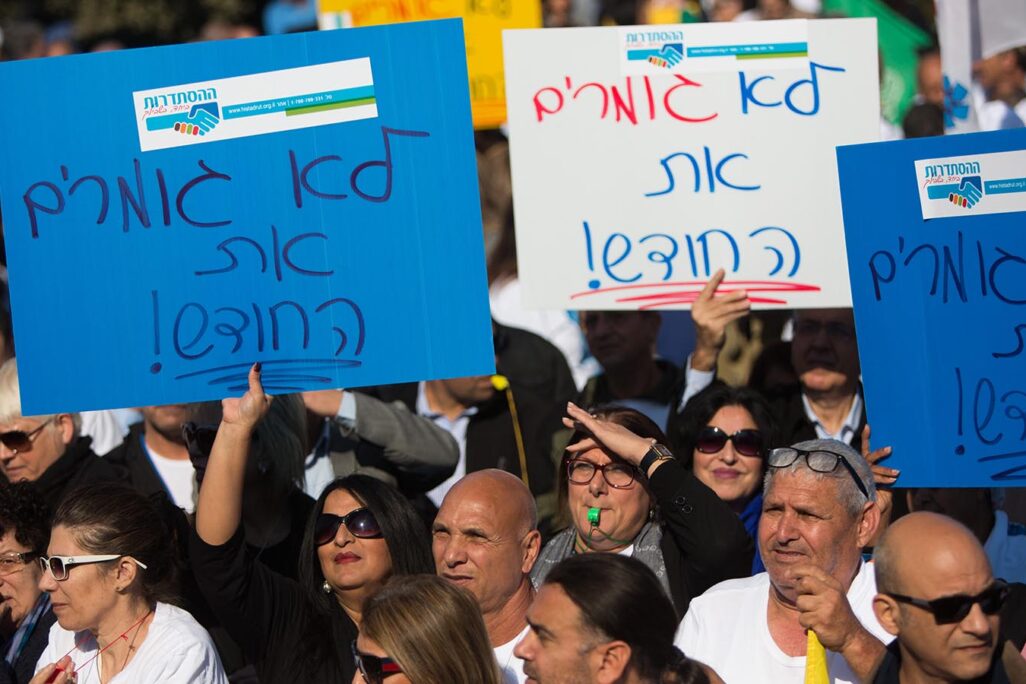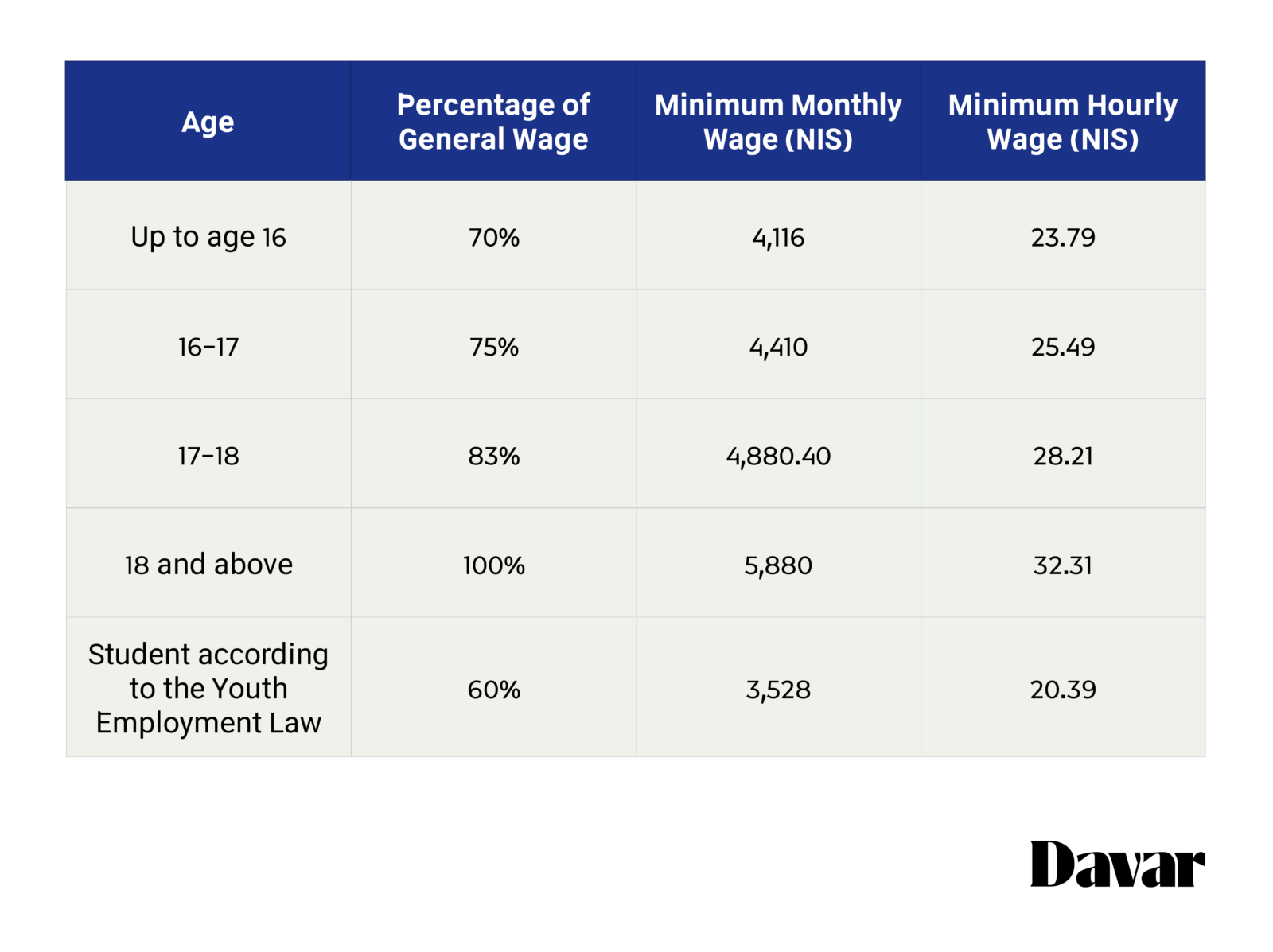
An increased minimum wage went into effect in Israel starting on April 1st. The minimum wage rose to 5,880 shekels ($1584) a month for full-time positions, corresponding to an hourly minimum wage of 32.31 shekels ($8.70). According to a Bank of Israel report, about 17% of all workers in the State of Israel earn minimum wage – more than 565,000 people.
The increase follows an increase in the average wage last year. In accordance with the Minimum Wage Law, the minimum wage must be updated annually in April and set so that it stands at least at 47.5% of the average wage (set at the beginning of the year by the National Insurance Institute). Last year, the monthly minimum wage rose from 5,300 shekels ($1428) to 5,571.75 shekels ($1501). The hourly minimum rose from 29.12 shekels ($7.84) to 30.61 shekels ($8.25).
The increase in minimum wage also affects the minimum wage for youth, which is set as a percentage of the general minimum wage depending on the worker’s age.

Additionally, due to a collective agreement between the Histadrut and the Israel Security Association, which the Finance Ministry expanded to cover the entire industry, the minimum wage in the security sector also increased. The minimum wage for security inspectors is 10% higher than the general minimum wage and will stand at 35.54 shekels ($9.56) per hour. For "basic security guards," the minimum wage is 15% higher than the general minimum wage, standing at 48.46 shekels ($13.04) per hour. The agreement also includes a 60% higher minimum, at 51.69 shekels ($13.91) per hour for senior security guards and guards in the Jerusalem area.
This article was translated from Hebrew by Etz Greenfeld.






